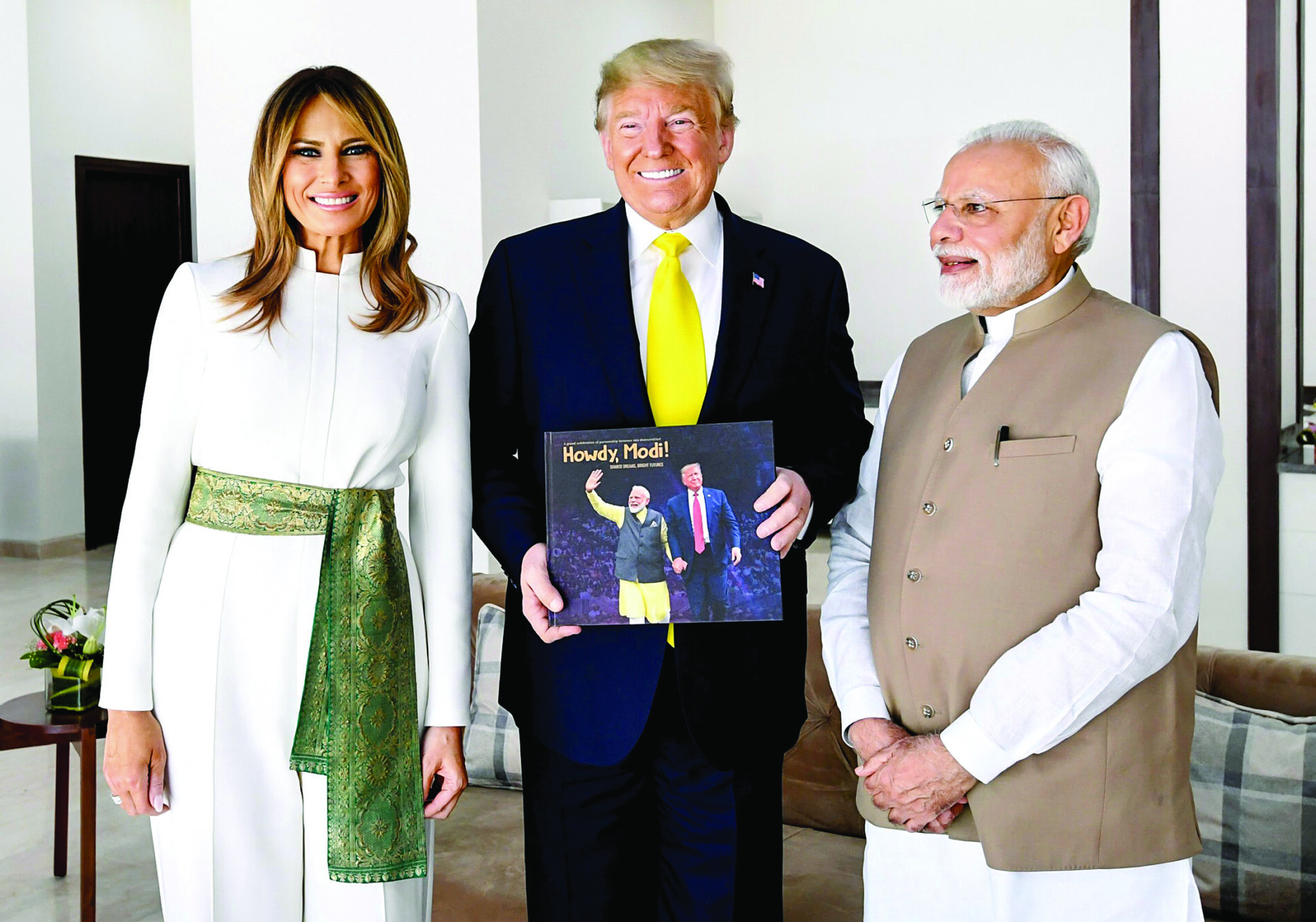Amidst the prevailing anxiety surrounding President Trump 2.0, India can still smile and feel reasonably confident.
Donald Trump’s friends and foes alike are feeling the heat of his provocative, rattling and outrageous remarks even before he is sworn in as the 47th President of the United States. It seems he relishes his reputation as the disrupter. Criticising Jimmy Carter, former President, for handing over the canal to Panama, he threatened to take it back. More provocative was his threat of making Canada the 51st state of the USA (using economic leverages) unless it controls the entry of illegal drugs and immigrants to the US and pays for its defence. An enraged Canadian Prime Minister Justin Trudeau quipped “there isn’t a snowball’s chance in hell” that Canada would join the US.
Mexican President Claudia Sheinbaum isn’t going to be bullied by Donald Trump. Following Trump’s threat that the Gulf of Mexico be renamed the Gulf of America, she responded, “Obviously, the Gulf of Mexico is a name recognized by the United Nations.” Then showing a historic map of North America, which refers to the present day USA as “America Mexicana ”she asked tongue in cheeks: “Why don’t we call it Mexican America? It sounds nice, no?”
Trump’s threat that he “would tariff Denmark at a very high level” unless it hands over rare earth rich Greenland has shocked the EU. At a press conference he said, “Greenland is an incredible place, and the people will benefit greatly if and when it becomes part of our nation.” Both France and Germany have warned Trump against the forcible takeover of Greenland.
In his first term, attending the first meeting of NATO, he demanded that member countries should pay more for NATO’s defence budget; most of them enhanced their contributions
India-US defence trade is booming; Indian Army, Air Force and Navy have long inventories which will give the US defence manufacturing companies big contracts, generate jobs and keep Trump happy. Defence relations will deepen further if Trump nudges more US defence manufacturers to start production in India with transfer of technology like GE’s agreement to produce GE F-414 jet engines with HAL signed in Biden’s term. Two agreements: SOSA (Security of Supply Agreement) and ALO (Assignment of Liaison Officer Agreement) signed in August 2024 should boost defence cooperation. `
According to IBEF, in 2023-24, the US was India’s largest trading partner with bilateral trade worth US$118.2 billion and surplus of US$36.8 bn in India’s favour; the US was India’s largest export destination, accounting for 17% of her global trade. India should voluntarily reduce duty on a select range of imports; on many products our duty rates are much higher than the rates charged by the ASEAN countries. In return, we should demand much easier market access for several Indian exports.
With ambitions to become the third largest economy in the world by 2030, we shouldn’t seek restoration of GSP regime scrapped by Trump in his first term.
Thanks to his pressure in the first term, we had stopped import of oil from Iran, and started buying oil and gas from the US whose exports to India have risen to US$14.3 bn; in his second term, this trade is likely to expand further. iCET (initiative on Critical and Emerging Technologies) signed by the Indian and the US NSAs under Biden’s presidency is going to be the driving engine of technology collaboration between the two countries as it covers critical areas like wireless telecom, AI, quantum computing, semiconductors and brings the governments, industries, academia, start-ups on the same platform. India needs more agreements under Trump 2.0 on the lines of chip manufacturing and semiconductor fabrication agreements reached under Biden’s eye.
Above all, 4 million strong, rich and influential Indian Americans constitute the strongest bridge between India and the US.
Trump doesn’t fit in any frame of a conventional politician. He is a billionaire turned politician, turned President who has also been a successful TV host and a playboy of sorts. His blusters should be taken with a pinch of salt. Trump rattles and unsettles his counterparts with his provocative statements and pushes them into making deals. In his first term, his initial threats against Canada and Mexico did make them agree to a revised NAFTA. And China too agreed to let more American exports enter China though it didn’t change the trade balance much. Former Indian ambassador to the US, Arun K. Singh feels, “This is just a show of strength so that it appeals to his base.” Singh adds, “He’s pushing his friends, partners, and weaker countries and giving a pretence of strength.”
Luckily, we have a Prime Minister in Narendra Modi who has interacted with him for four years and developed personal warmth and chemistry. “Howdy Modi” (September 2019) was the largest congregation of Indian Americans that Trump had ever attended. It was surreal to see an Indian PM introducing an American President to a 50,000 strong jostling crowd in the US. And “Namaste Trump” (February 2020) organised by Modi in Sardar Patel stadium, Ahmedabad, went a step further; 125,000 Indians greeted Trump, something he has never seen in his entire life. Then Trump’s romantic stroll with Melania on the lawns of Taj Mahal, the monument of love, in Agra might have left life long memories.
Trump’s fundamentals are clear: those who want something from the US should be ready to give something. So, we should be ready for bargains and trade-offs. But we shouldn’t be too worried, Trump himself quipped after his talk with PM Modi last time that he was a hard negotiator. And Modi believes that the best deal is one in which both sides feel winners.
* Surendra Kumar is a former ambassador of India.

